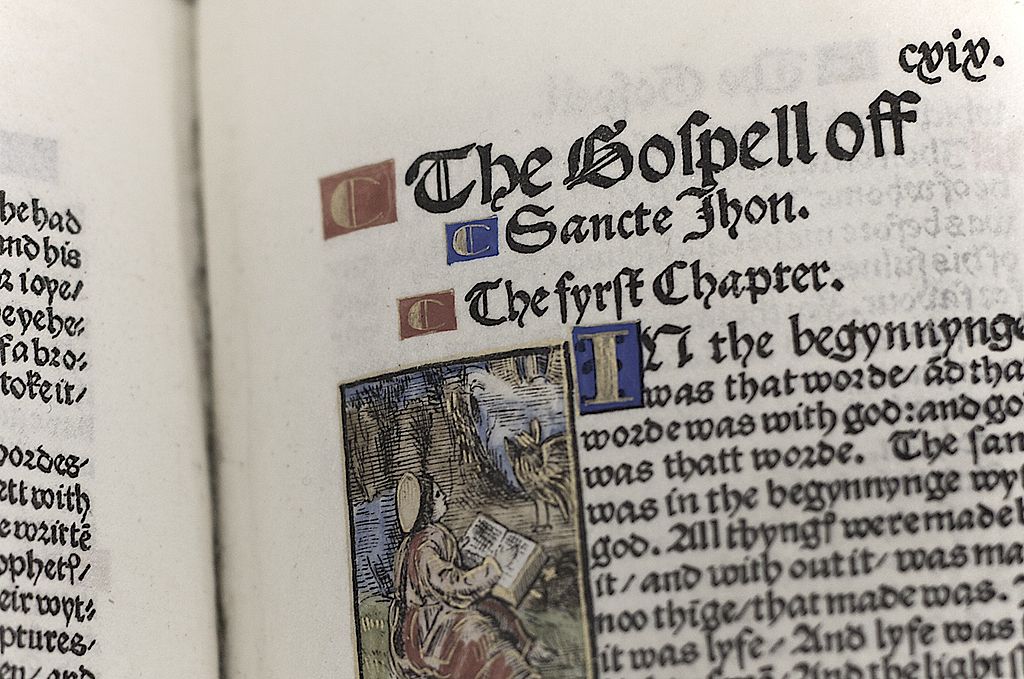A Warning from a not-so-famous Amos
“The time is surely coming,” says the Sovereign Lord,
“when I will send a famine on the land—
not a famine of bread or water
but of hearing the words of the Lord.”
– Amos 8:11 (NLT)
The above verse is somewhat foreboding. I suppose anytime God warns us about something it should be. Today is simply a perspective builder. Amos lived twenty-seven hundred years ago. His small story is nestled in a back corner of the Old Testament Bible. The kingdom of Israel was being warned it would suffer a famine not of bread and water, but the very Word of God.
Scriptures (what these words are called) were traditionally read only by specially delegated Priests. People would go to the temple to hear them being read. In fact, this would be the way of things well into the middle ages, long after the apostles had spread the gospel throughout the known world. For efficiency, and preservation, many letters sent to the early
churches by apostles were collected together with older Hebrew writings and bound into a large tome (by then referred to as the Holy Bible). These were slowly hand-copied and transcribed into Latin, a language unfortunately not understood by the everyday person. Like the Israelites centuries before who had lived for a time in exile without a place or worship or written scriptures to study, many believers had lost the ability to read, and to spiritually feed upon God’s teachings and lessons themselves.
Then a technological miracle happened. A man named Guttenberg invented the printing press which could print multiple copies of a single book. His first production: a Bible. God’s word was again available, more than ever before in history. It would still take several years for the first official modern English translation, the Tyndale Bible, to be produced. But it was a great start. The Bible has been the bestselling book in history since then. Today, after years of everyone needing a backpack to carry their big floppy New King James around, Life Church and Bobby Gruenewald’s YouVersion app feeds us the entire Bible – many translations – into the palm of our hand. This little invention changed the game almost as much as the printing press, and we’ll talk about its vast uses more in another article in this series.
Like the literal food we eat to stay alive, there is so much variety in how we can dive into scriptures today, and yet. And yet.
What’s your point with all this, Dan? Well, simple. It starts with this:
1 In the beginning was the Word,
and the Word was with God,
and the Word was God.
John 1:1 (NIV)
In John’s gospel, he refers to Jesus as the Word. Jesus Himself is the Ultimate Word. A heavy concept, but powerful image. If there is a direct connection between the words, stories in the Bible, and God Himself, and if you can come to know Him more fully by the words you read, then why not read?
What we put inside us gives us life. What we see and hear and think is just as important as the food we ingest. Why don’t more people devour God’s word? There are several possible reasons, and most would be opinion when it comes down to it. In short, however, many of us have been conditioned to believe it’s wrong to admit we don’t understand something, let alone question the meaning of something we hear “in church”. Worse, what if we disagree with what we’ve read?
God’s big enough for a debate, not to worry. The early apostles infused their time together with fellow believers teaching God’s word. They literally met Him, but knew those who came after would not, and His Word and their experience was the one constant everyone had. It’s the same
constant we all have today.
Back to Amos. What would happen if a natural or manmade disaster wiped out the food supplies in our region? Suddenly, we’d feel real hunger. Every bite would be precious. What if tomorrow all of these lessons about God we could have poured into ourselves were taken away? In some countries that is exactly what is being attempted. We have the chance now, to feed ourselves on these unchanged lessons, and to personally get to know the Creator of the Universe more than anyone could have done in history! One word at a time. If there was a “too late” point, wouldn’t we want to get as much as we could into us now, even if we might not understand everything we take in yet?
This has nothing to do with what church, or home group, or the mission fields you might be a part of. This is the foundation, and the basic building block of an intimate relationship. Getting to know who the Other is, in order to grow in love. In the end, nothing in God’s Word is returned void, because He is the Word, and the Word is Him.
That’s the stump speech to get some of us more interested in giving this Bible thing another shot. In a few days, I’ll talk talk about ways to read with confidence, how to read with others, and of course all the cool avenues of reading we have these days. Honestly, though, there are no rules. If you’re a Christian in the wilderness, just read. And enjoy the bread.
Written by Dan Keohane





Pingback: What’s the Word, pt. 2 – The Holman Report